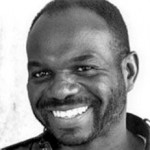By Lucile Scott
At 2% and rising, the Caribbean has the highest rate of HIV infections outside sub-Saharan Africa, yet AIDS awareness efforts remain scarce. The LIVE UP campaign, which launched on stations across the Caribbean last Sunday, March 11, is the first to try and bring HIV education into every Caribbean home. In one TV spot, Barbados soca musician Rupee, a global sensation, discloses how his father infected his mother with HIV. After finishing the brief tale, which ends with both his parents’ deaths from the virus, the Caribbean billboard-chart topper says, “We have to love, protect and respect our women.” He then launches into a sweet, slow song he says he wrote for his mother.
In a region with rampant HIV stigma and frequent hate crimes against homosexuals, like the murder of Jamaican AIDS activist Steve Harvey in 2005, Rupee’s decision to openly share a story about HIV is a rare one. In fact, several other popular Caribbean musicians like, Beenie Man, sing about attacking gay men, fueling discrimination against gay and HIV-positive people. But HIV itself remains all too common: In 2005, there were 30,000 new infections in the region and 300,000 people living with HIV, many in fear of being outed, fired, denied health care or even beaten or killed.
LIVE UP is trying to turn the island tide. Ads are now bombarding primetime TV and radio space, referring viewers to an interactive website that offers HIV education. All the ads use the official tagline of ‘Love, Protect, Respect,’ calling on people to get the facts straight about HIV, use protection, and love and respect themselves and others. “Currently many people respond to HIV in terms of religious beliefs [which fosters discrimination and stigma],” says Allyson Leacock, who heads up both the Caribbean Broadcast Corporation and the Caribbean HIV/AIDS Broadcast and Media Partnership. “We hope to replace that with love and respect.”
LIVE UP is the first major effort of the Caribbean HIV/AIDS Broadcast and Media Partnership, which began work last spring as part of the Global Media AIDS Initiative, launched by UN Secretary General Kofi Annan in 2004 to get HIV awareness on airwaves worldwide. The Caribbean effort includes 56 broadcasters from 23 regional territories and receives funding from multiple sources including the Kaiser Family Foundation and the Ford Foundation. Karen Sealey, Director of the Caribbean Regional Support Team for UNAIDS who is based in Trinidad and works on the ground with AIDS organizations throughout the islands, says, “The ads are done extremely professionally and can stand their own against any campaign.”
Four such polished spots were released this month, with another set slated for June and another for December. The launch occurred during the International Cricket World Cup, which the Caribbean is hosting this year. The event boasts 2 billion global viewers. “Within the Caribbean, cricket is almost a religion,” says Leacock, adding that the partnership viewed the event as the ideal moment to raise awareness both at home and abroad.
LIVE UP not only recruited cricket superstars to speak up against HIV stigma in ads aired during the tournament, but also to go out into communities and talk about HIV while the worlds’ eyes are still on them. Other segments try to counter pressures each sex may face against having safe sex and to dispel misinformation about AIDS, with actors explaining why they “Live Up” and use protection.
Is the campaign doing the job? “It’s excellent,” says Sealey, “But it’s only the tip of the iceberg. We need to get the message of ‘love, respect and protect’ into society and all aspects of a person’s behavior. We need it to explode into a dialogue.” She adds that the situation is especially dire among young folks. AIDS is the leading cause of death among 14-to 44-year-olds in the region. “I think it is a great idea because it gives young people information,” says Kendra Griffith, 26, a reporter for a TV news channel in Belize City, Belize.
The brightly colored website also includes spots where people can tell their own stories, either of coping with HIV or of how they learned to “Live Up” (anonymously if they want). They can also submit HIV related poetry and art.
And the partnership has more in the works. This May they are hosting a conference to educate people who create television programming on how to weave realistic HIV plots into their shows. And Leacock hopes to get more ads, more airtime and more islands involved. What’s not to love and respect about that?
A New Wave for Caribbean HIV Prevention?






Comments
Comments